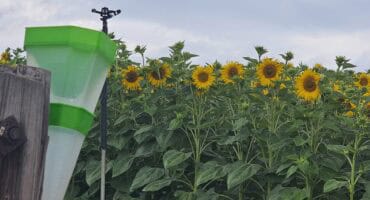
Depending on what you know, three things that make summer great could also prove fatal if you don’t know what to do in an emergency. An ER24 expert shares how to keep yourself – and your family – safe this summer.
Water
As Zita Mathios, an ER24 advanced life support provider based at Johannesburg North, says, many people underestimate the dangers of a backyard pool, the sea or a mountain dam. “In the peak of summer we attend to a drowning-related call at least once a week,” she explains. “These emergencies are especially common among children under the age of four and often have poor outcomes.”
Keys to preventing a drowning
- Protect your pool with a security gate, fence and impermeable cover.
- Watch children at all times (it takes less than five minutes for a child to submerge and lose consciousness)
- Enrol your child – and your childminder – for swimming lessons* as soon as possible.
- Ensure you and your childminder have completed a certified CPR course
- Exercise responsible behaviour at all times around the pool or at the beach. Drinking alcohol and playing silly games can lead to disaster if you slip or fall into the water.
* Even young children who have had swimming lessons must be supervised, since the fact that they have had the lessons may lead to less vigilance from caregivers/parents and a false sense of security in the child.
In the event of a drowning
- Call ER24 on 084 124 for help
- If it is safe for you to do so, remove the person from water to a dry, hard surface
- Start CPR immediately and keep going until help arrives
Wildlife
Snakes and other reptiles are more active in warm weather as they attempt to regulate their body heat. In addition, blooming summer flowers attract a wide array of insects. As Mathios explains, stings and bites are usually harmless and result in local pain or swelling. However, some cases can be fatal. “Anaphylaxis is an extreme reaction to a simple sting/bite,” she says. This results in widespread swelling, hives, airway obstruction, distributive shock and potentially death. We get these call-outs often, especially at parks and outdoor events.”
Are bee stings more of a threat than snake bites during summer?
Keys to preventing snake bites and insect stings:
- When faced with a snake in your path, do not approach it
- When hiking, always wear ankle protection
- When outside with a drink, always keep it covered
- Be vigilant when sitting on – or grabbing objects – outdoors
- Don’t provoke any hives or nests
- In the event of a snake bite:
- Call ER24 on 084 124 for help
- Do not attempt to catch or handle the snake.
- If possible, take note of its features and colour (a phone photograph to show paramedics would be perfect)
- Don’t attempt to suck out the venom – it’s a Hollywood myth.
- Keep yourself (or the victim) calm and ensure you (or the victim) keep as still as possible
In the event of an insect sting or bite:
- Remove yourself (or the victim) from the vicinity of insect/s
- Call ER24 on 084 124 for help
- Scrape out the sting using a credit card or similar (pulling it out releases more toxins and takes more time)
- Keep yourself (or the victim) calm, paying careful attention to the person’s skin condition
Heat
Mathios says heat exhaustion is an increase in body temp above 38℃ with symptoms of sweating, dizziness, nausea and a fast pulse. If heat exhaustion isn’t managed it can develop into heatstroke (or sunstroke) where your body temperature rises above 40℃ and your symptoms worsen.
“We often get calls for heat exhaustion, especially at fitness events,” Mathios adds. “Heat stroke doesn’t happen as often but is prevalent at shopping malls, where children or pets are locked in cars with no ventilation. The onset of heat stroke is relatively fast in this circumstance.” Mathios explains this is because children can’t regulate heat as well as adults and succumb to heat stroke much faster.
Keys to preventing heat exhaustion and heat stroke:
- Drink plenty of water
- Do not exert yourself outside in hot temperatures
- Avoid the midday sun
- Avoid excessive alcohol outside in hot temperature as this leads to dehydration
- Wear sunscreen, as sunburn contributes to a rise in body temperature
- Don’t leave children and pets in cars, even with a slightly open window
In the event of heat exhaustion:
- Remove the person from heat (place them in the shade, place their feet in a pool, place a cool cloth on their forehead, or move them to an air-conditioned area)
- Remove excess clothing
- Ensure they drink plenty of water or a sports rehydration drink
- Monitor for at least 30 minutes*
* It is important for a health professional to measure core temperature. Identification and urgent treatment of heatstroke are very important.
If they don’t improve:
- Call ER24 on 084 124 for help
- Keep encouraging them to drink water
- Do not submerge them in cold water as this can trigger an adverse reaction. Instead, sponge their forehead, chest and underarms with cool water until help arrives
ER24 can be contacted on 084 124 for any medical emergency.





